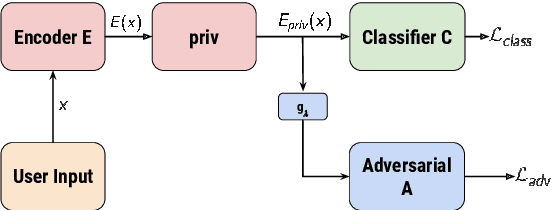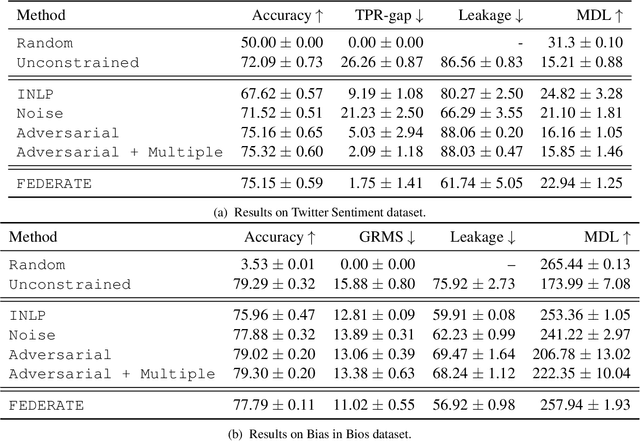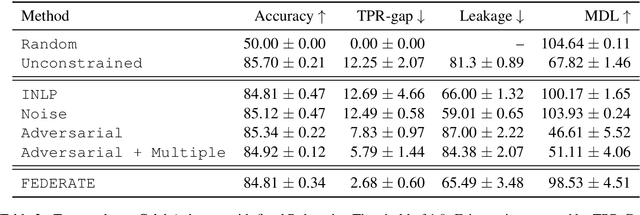Fair NLP Models with Differentially Private Text Encoders
Paper and Code
May 12, 2022



Encoded text representations often capture sensitive attributes about individuals (e.g., race or gender), which raise privacy concerns and can make downstream models unfair to certain groups. In this work, we propose FEDERATE, an approach that combines ideas from differential privacy and adversarial training to learn private text representations which also induces fairer models. We empirically evaluate the trade-off between the privacy of the representations and the fairness and accuracy of the downstream model on four NLP datasets. Our results show that FEDERATE consistently improves upon previous methods, and thus suggest that privacy and fairness can positively reinforce each other.
* submitted to: ACL-ARR 2022 (February) -
https://openreview.net/forum?id=BVgNSki6q1c
 Add to Chrome
Add to Chrome Add to Firefox
Add to Firefox Add to Edge
Add to Edge